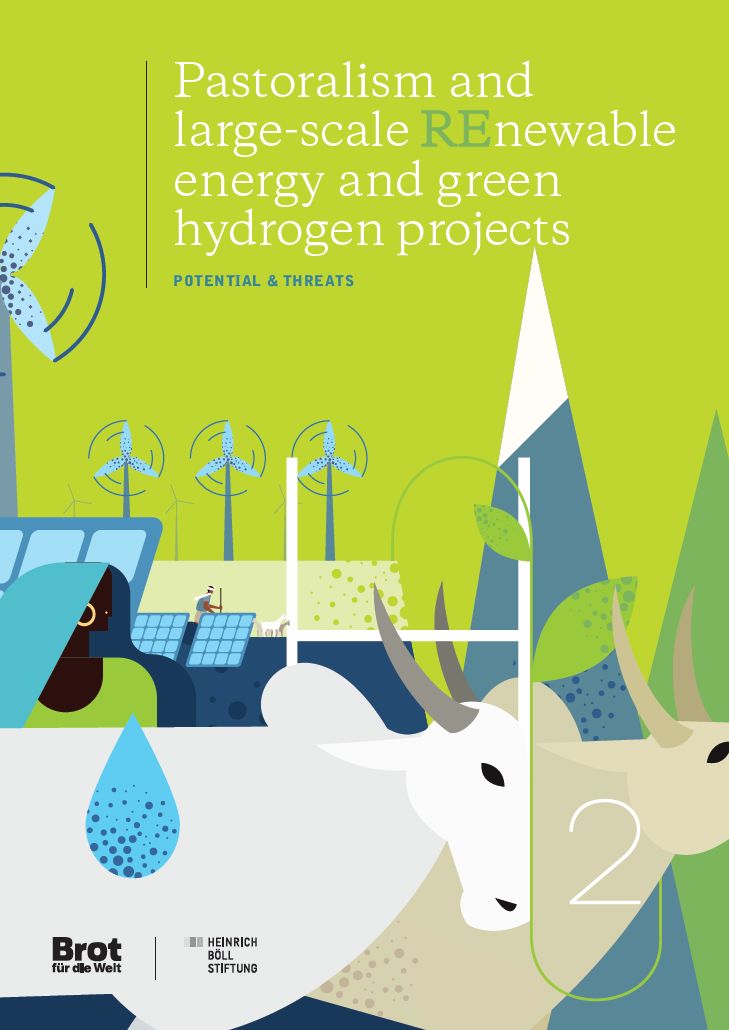Pastoralism and large-scale renewable energy & green hydrogen projects
In our efforts to replace fossil fuels with clean energy, green hydrogen is seen as a game changer and key for the low-carbon transition. This requires a massive upscaling of renewable power. Huge solar and wind plants built to achieve the global climate goals, however, may compete with traditional uses for land and water. A new analysis commissioned by Heinrich Böll Stiftung and Bread for the World found that without careful planning, green hydrogen installations fed by large scale wind and solar plants may affect local communities such as pastoralists and serve to intensify community conflicts.
In March 2022 the United Nations General Assembly declared 2026 as the International Year of Rangelands and Pastoralists (IYRP). Rangelands not only support the livelihoods of hundreds of millions of pastoralists, they also ensure nutrition and food security worldwide. In the face of a changing climate, pastoralists play a vital role in maintaining and increasing biodiversity, developing sustainable food systems and achieving the Sustainable Development Goals. At the same time, rangelands also offer perfect conditions for renewable energy projects.
The study authored by Hussein Tadicha Wario and Ann Waters-Bayer found that conflict is not inevitable. Careful design, good participation and respect for the rights of pastoralists communities to free, prior and informed consent pave the way for solutions that benefit both local communities and society at large.
In the event they presented the study and discuss together with Christian Schnohr and Kirsten Westphal what this means for the private sector and the political implementation.
- Hussein Tadicha Wario, Center for Research and Development in Drylands, Kenya
- Ann Waters-Bayer, Agrecol Association, Germany
- Christian Schnohr, Press officer at ABO Wind
- Kirsten Westphal, Executive Director at H2Global StiftungJaime Fernandez, Energy Policy Advisor, Bread for the World
- Sarah Ribbert, Project Officer International Politics, Heinrich Böll Foundation


No comments:
Post a Comment